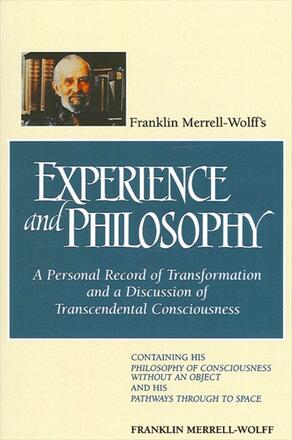
Franklin Merrell-Wolff's Experience and Philosophy
A Personal Record of Transformation and a Discussion of Transcendental Consciousness: Containing His Philosophy of Consciousness Without an Object and His Pathways Through to Space
Alternative formats available from:
Description
Here is an account of the enlightenment experience and its consequences written by a trained philosopher and mathematician who is also a master of English prose. Merrell-Wolff experienced enlightenment, became established in the state, and wrote clearly about the value and nature of the knowledge he attained. This is a record of transformation in consciousness written during the actual process itself, supplying an unusually intimate view.
The author faces the epistemological problem directly—the problem of demonstrating the reality and value of knowledge springing from mystical roots. He gives serious attention to the philosophical and psychological criticism, writing with an eye to the pitfalls indicated by such criticism. He did not write only for those who believe easily.
After graduate work at Harvard, Franklin Merrell-Wolff accepted a position as professor of mathematics at Stanford. A few months later, he abandoned a promising academic career in order to facilitate his quest for a third way of knowing—a way apart from sense perception and conceptual cognition. "I found myself in sight of the limits to which our present egoistic consciousness has reached, and also had found adumbrations of another kind of consciousness where alone, it seemed, solution of the antinomies of the subject-object consciousness could be found. "